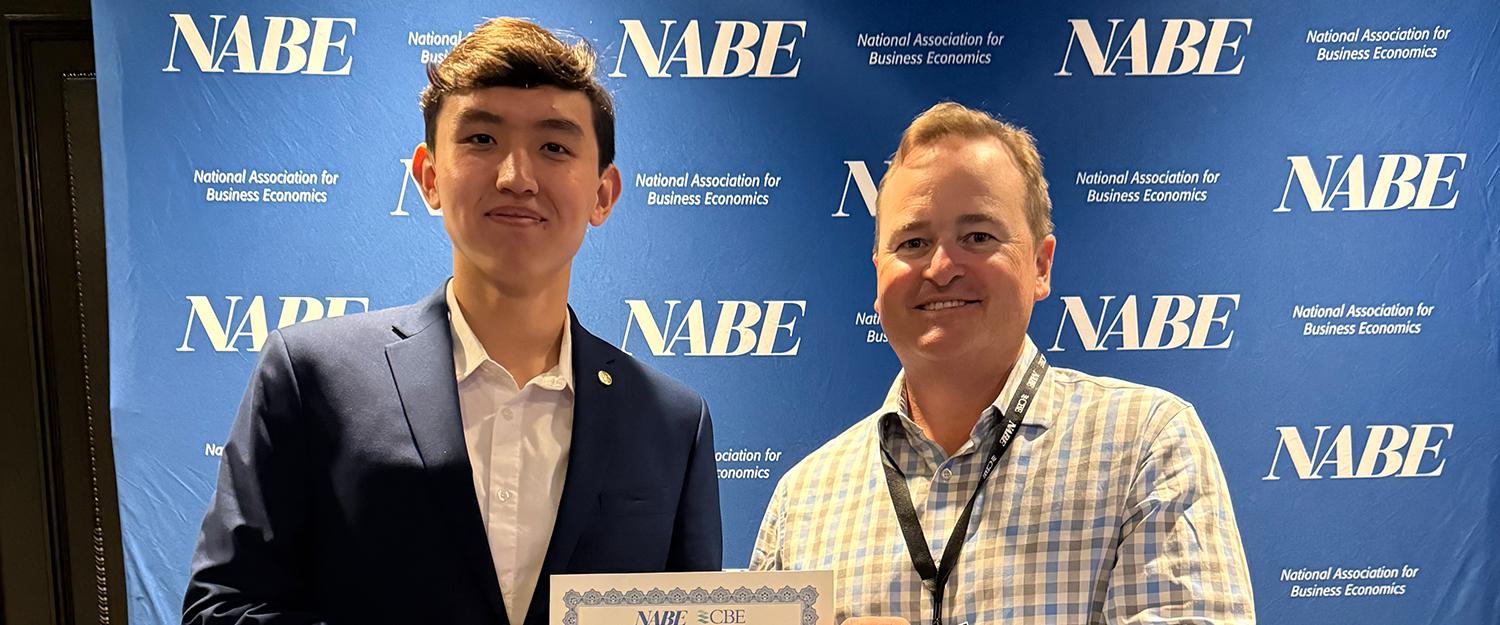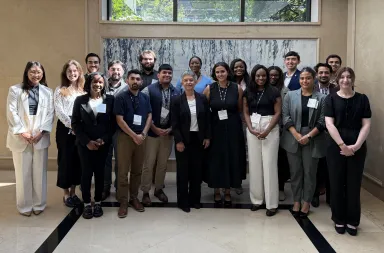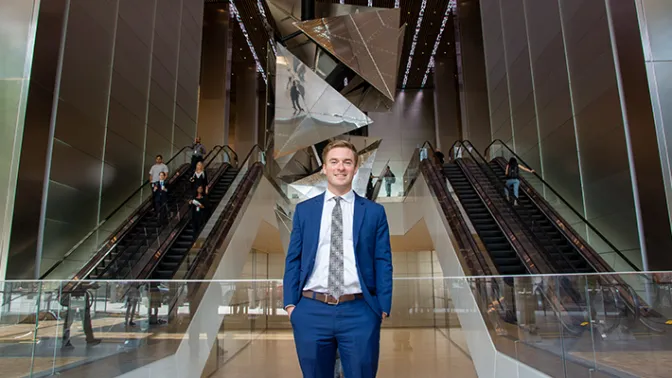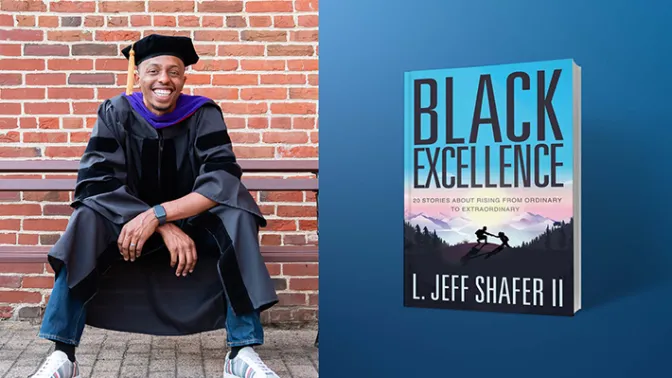
National Scholarship Gives a Boost to A Young Economics Scholar On the Rise
By the end of his second year at LeBow, Akhmad Dyussembayev ’28 had met two Federal Reserve Bank presidents.
It’s a fun fact, but it’s not for bragging rights or by coincidence: Dyussembayev, a third-year student majoring in economics and data science, is serious about building a career as an economist, and he’s sought out every opportunity to learn and grow.
His growth in the field received a major boost earlier this year, as he was named a NABE Scholar by the NABE Foundation, the charitable arm of the National Association for Business Economics.
Even among this talented and ambitious group, Dyussembayev stands out: He’s the only currently enrolled undergraduate student in the 2025-26 cohort. The other Scholars are either early-career economists or enrolled in masters or doctoral programs.
“Any time I talk to someone at a conference and I say I go to Drexel, they ask me, ‘Who are you researching under?’ or ‘Who’s your PhD advisor?,’” he says. “Then I’ll tell them I’m a rising junior in college, and they say, ‘oh wow!’”
“After that, they’re always very happy to talk to me and give me some advice.”
He attended NABE’s 2024 Economic Policy Conference in Washington, DC, where he met San Francisco Fed President Mary Daly. That early exposure to NABE and its programming led him to apply to the NABE Scholars program, first offered in 2020 to expand opportunities in the profession for economics students and early-career economists from diverse backgrounds.
“I applied because of the people I knew I could meet at these conferences and seminars,” Dyussembayev says. “I felt it was really important to understand not just what economists do for a living, but how they think and how they communicate.”

Since being named a Scholar, he met Boston Fed President Susan Collins at an event in July following NABE’s 2025 Economic Measurement Seminar.
“I had a chance to personally talk to her, and she shared some advice on careers,” he says. “It’s really great to be able to talk to people like her who are at that level.”
This exposure to current thinking and trends has already prompted a shift in his academic and professional trajectory: he’s declared a minor in finance and took an international business course during summer term. He’s also thinking ahead to his first co-op and the kind of skills he’ll need, and says he’s trying to “identify what’s needed at the moment and see the future in it.”
A native of Kazakhstan, Dyussembayev first studied economics in high school and was immediately drawn to the field.
“It wasn’t Advanced Placement, but it was still a good introduction to basics in microeconomics and to how the global economy works overall,” he says. “I remember really enjoying working on some group projects in analysis and realizing, ‘I could do this every day for 20 years.’”
In addition to attending NABE conferences and taking a Certified Business Economist course on causal inference and advanced topics in statistics and data analysis, Dyussembayev is honing his economics expertise as a member of the Drexel’s College Fed Challenge team. He’s part of the team conducting research on private fixed investment trends and their sensitivity to interest rate policy and macroeconomic uncertainty.
“We hope to combine our findings and come up with some good recommendations,” he says. “It’s really a simulation of how the Federal Reserve Board of Governors works.”
“For me, personally, economics is a way of thinking rather than a name that’s on your degree. I’m passionate about economics overall because of how it’s used in working through and solving problems, and it’s exciting to me that I can use it in a lot of different areas.”


